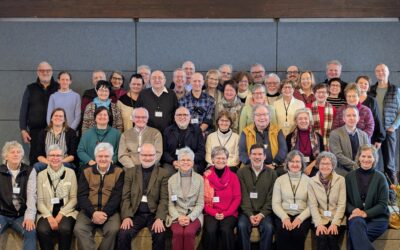 More than two months of continuous rain, more by far to what is forseen every year, are beating Thailand and around eight million persons. The worst hit provinces are those of Ayutthaya, Pathum Thani, and Nakhon Sawan, where the level of the water has gone beyond four metres high. Some members of the Focolari, who live in Bangkok, write to us: “ The consequences of what has happened are before the eyes of all: whole villages evacuated, industrial zones invaded by the water with the loss of tens of thousands of places of work, schools closed for an undetermined period. Years will be required to recover what we have lost.” But even in the midst of this situation, there are facts taking place that speak of still possible hope, of the desire for new birth stronger than sorrow. Thus, they continue to write from Bangkok: “What nobody expected, at least under these dimensions, is concrete love, the help that very many people are giving to who is suffering. A reporter from CNN has defined as “an incredible social effect” what is happening in Thailand. And it is so. All help each other, all try to do something for for those who have been hit; thousands of volonteers have worked 24 hours on 24 to prepare 1,200,000 sand bags to mend or raise the banks of some important canals in the zones of the floods.Those working are in the majority young people, who wanted to contribute to save what can be saved.” The work of the Focolari to bring material, spiritual, and moral help, forms part of this common work that involves the whole country, encouraging fraternal experiences that make every hope credible. Amongst the many testimonies that are reaching our editorial office, we have chosen that of S.C., university teacher, who thus relates: “I have tried to understand together with my students what to do for the victims of the floods. The youths consulted each other and decided to gather money approaching the people on the street, going up on the trains. It required a bit of courage, and yet…Around twenty of them agreed to meet each other in front of the big shops, equipped with large posters, a box and two guitars. They are all young buddists convinced of the importance of doing good to others. I encouraged them to first of all live in fraternity amongst themselves, offering difficulties and weariness for the good of the country. The collection went beyond what was expected, 17,700 bath, a large sum for our economy. But most of all, it contributed to widening the hearts of the youths on the needs of others. This commitment of theirs continues to give fruit.”
More than two months of continuous rain, more by far to what is forseen every year, are beating Thailand and around eight million persons. The worst hit provinces are those of Ayutthaya, Pathum Thani, and Nakhon Sawan, where the level of the water has gone beyond four metres high. Some members of the Focolari, who live in Bangkok, write to us: “ The consequences of what has happened are before the eyes of all: whole villages evacuated, industrial zones invaded by the water with the loss of tens of thousands of places of work, schools closed for an undetermined period. Years will be required to recover what we have lost.” But even in the midst of this situation, there are facts taking place that speak of still possible hope, of the desire for new birth stronger than sorrow. Thus, they continue to write from Bangkok: “What nobody expected, at least under these dimensions, is concrete love, the help that very many people are giving to who is suffering. A reporter from CNN has defined as “an incredible social effect” what is happening in Thailand. And it is so. All help each other, all try to do something for for those who have been hit; thousands of volonteers have worked 24 hours on 24 to prepare 1,200,000 sand bags to mend or raise the banks of some important canals in the zones of the floods.Those working are in the majority young people, who wanted to contribute to save what can be saved.” The work of the Focolari to bring material, spiritual, and moral help, forms part of this common work that involves the whole country, encouraging fraternal experiences that make every hope credible. Amongst the many testimonies that are reaching our editorial office, we have chosen that of S.C., university teacher, who thus relates: “I have tried to understand together with my students what to do for the victims of the floods. The youths consulted each other and decided to gather money approaching the people on the street, going up on the trains. It required a bit of courage, and yet…Around twenty of them agreed to meet each other in front of the big shops, equipped with large posters, a box and two guitars. They are all young buddists convinced of the importance of doing good to others. I encouraged them to first of all live in fraternity amongst themselves, offering difficulties and weariness for the good of the country. The collection went beyond what was expected, 17,700 bath, a large sum for our economy. But most of all, it contributed to widening the hearts of the youths on the needs of others. This commitment of theirs continues to give fruit.”
Look after Creation
Look after Creation




0 Comments